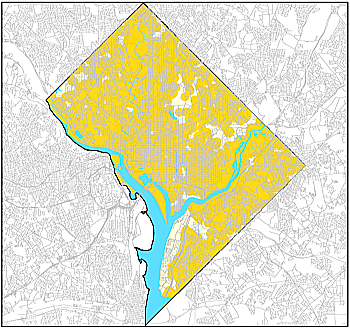Syringe Exchange Takes Center Stage in amfAR’s Advocacy Efforts
August 17, 2009—Following initial steps by Congress last month to lift the longstanding ban on the use of federal funds for syringe exchange programs (SEPs), amfAR is working with lawmakers to remove proposed restrictions that would greatly hinder the work of these lifesaving programs, which have generated a dramatic reduction in HIV incidence among injection drug users.
In a historic decision, a House subcommittee under the leadership of House Appropriations Committee Chair David Obey voted in July to remove language from the appropriations bill that has prevented federal money from being used for SEPs—a move that amfAR has advocated for more than two decades. However, a provision in the bill would prohibit federally supported SEPs from operating within 1,000 feet of schools, universities, parks, playgrounds, or youth centers—a move that would make it nearly impossible to provide syringe exchange in many urban areas, including Washington, D.C., where approximately three percent of the population is HIV-positive (see map).

The yellow zones on this map of Washington, D.C., indicate areas where syringe exchange programs would be prohibited—almost the entire city—if proposed provisions are adopted preventing the sites from operating within 1,000 feet of schools, playgrounds, and other institutions. (Courtesy of the Government of the District of Columbia). |
As a vocal advocate of syringe exchange, amfAR is taking a number of steps to ensure that the federal ban is lifted and SEPs are allowed to operate in all areas where they are needed. The Foundation is working in coalition with other advocacy groups, the Obama administration, and Congressional leadership on the issue. amfAR’s fact sheet titled Public Safety, Law Enforcement, and Syringe Exchange was used by Chairman Obey to make the case for funding SEPs during Congressional debate on this issue. amfAR is also working with other groups to develop maps of urban areas to demonstrate the potentially devastating impact of the 1,000-foot restriction, and encouraging mayors and health leaders from across the country to speak out in opposition to the restrictions.
The creation of a national AIDS strategy remains another high policy priority for amfAR, which is a member of the coordinating committee of the Coalition for a National AIDS Strategy. In cooperation with other AIDS groups, the Foundation is sponsoring two consultations on the strategy that will focus on research priorities and prevention, and is encouraging the Office of National AIDS Policy to create more opportunities for nongovernmental organizations to become involved in the process.
In addition, the Foundation is collaborating with the AIDS Vaccine Advocacy Coalition on a consultation on pre-exposure prophylaxis (PrEP), which will be held this fall. PrEP, which involves giving antiretroviral treatment to HIV-negative individuals at high risk of infection, holds promise as a potential prevention strategy, although it is still under study. Finally, amfAR continues to support the Obama administration’s efforts to remove the ban on travel and immigration to the U.S. by HIV-positive foreigners, and has submitted a letter to the CDC in support of ending this restrictive policy.
Related Articles
A Crucial Step for Advancing HIV/AIDS Prevention
The Challenge and Opportunity of a National AIDS Strategy